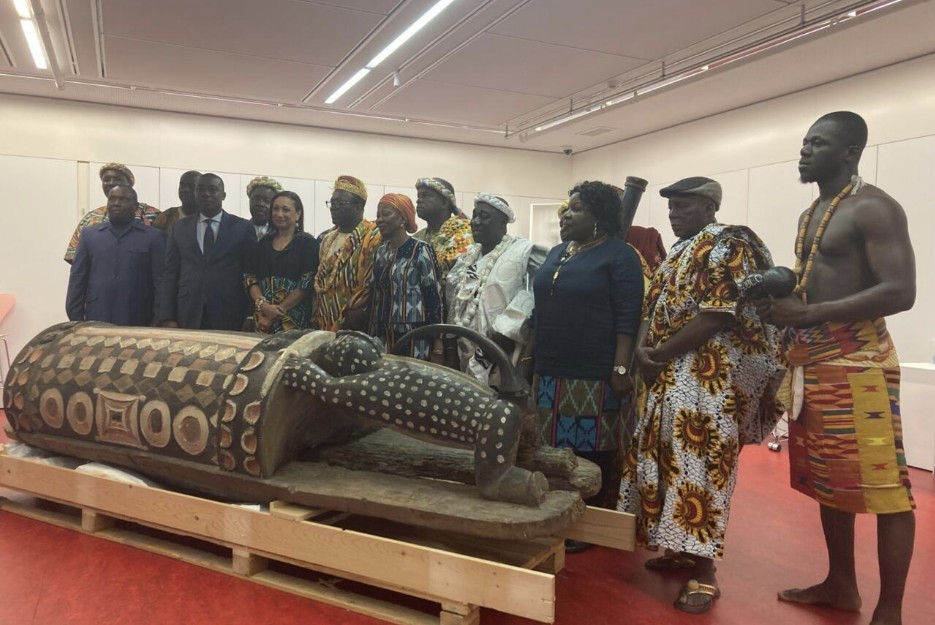The ANC’s historic loss of South Africa’s majority vote: why did it happen and what does it mean?
- Tara Grice
- Jun 20, 2024
- 3 min read

In a historic first, the ANC failed to secure a majority vote in the South African national election on May 29, 2024. Since coming to power in 1994, the party once led by Nelson Mandela has been a mainstay of South Africa’s political landscape. However, over the course of its thirty-year rule, public opinion of the government has shifted from near-unanimous support in the era of Mandela’s “Rainbow Nation” to growing disillusionment with ineffective governmental management, endemic political corruption, and the party’s failure to address a stagnating economy, energy cuts, and high rates of poverty and crime.
The decline in public favour toward the ANC is best witnessed in this year’s electoral outcome, where the ANC only secured 40.18% of the vote, down from 57.50% in 2019. The Democratic Alliance (DA), a longtime rival of the ANC – which has been criticised for appealing to white-minority interests – received the second-largest number of votes, at 21.81%.
In failing to achieve a majority vote, the ANC has had to concede its power by way of a coalition government. The power-sharing arrangement comprises four parties: the DA, ANC, the Inkatha Freedom Party (IFP), and the Patriotic Alliance (PA). The new cabinet will appoint ministers from each of the political parties in accordance with the partnership. As part of the deal, Cyril Ramaphosa has been re-elected as President and is now entering his second term.
What would a unity government look like?
Until now, the DA and the ANC have been at political odds. The DA has expressed its opposition to aspects of the ANC’s Black economic empowerment policies, such as the expropriation of white-owned land for use by poor Black farmers. It has also criticised the ANC’s policies for enriching the Black elite rather than promoting equal opportunity.
The DA, meanwhile, is popular with South Africa’s white minority. Its image, as such, is susceptible to racialized discourse where the fact of its white-led leadership diminishes its left-wing history. Former President of the ANC, Jacob Zuma, who was expelled from the party and now leads uMkhonto we Sizwe (MK), criticised that the inclusion of the DA in the coalition signalled the “return of apartheid and colonialism”. This is despite the DA’s inception as an anti-apartheid party in 1959 and its support from diverse racial groups.
The Economic Freedom Fighters (EFF), a radical left-wing party, declined to join a unity government with the DA, whilst MK failed to meet the criteria to join due to its rejection of the constitution and Zuma’s own animosity towards Ramaphosa.
Public opinion over the election outcome is divided. Many South Africans feel that the decision to unite with the DA in a coalition risks undermining Black empowerment schemes introduced by the ANC, due to the DA’s support of free-market ideology and economic reforms. Political commentators have noted the labelling of the coalition as a “unity government” may sanitise the reality of the ANC’s coalition with the DA to appease supporters. This is one justification for the inclusion of the IFP and PA in the new government, the former having secured only 3.85% and the latter 2.06% of the vote.
The ANC will have to navigate the complexity wrought between not only the parties’ disparate policies and objectives for improving the standard of life in South Africa, but also the legacy of race in the post-apartheid nation, which remains contentious and at the fore of public interest.
One advantage of the new framework is the strengthening of governmental accountability. The current coalition agreement, yet to be finalised, requires that all decisions passed through the government will receive 60% of support from the four parties, curtailing the ANC’s power by preventing it from acting without consensus. The coalition will ensure an integration of governance strategies and perspectives, particularly given the PA’s right-wing stance and the IFP’s strong Zulu support base. In deepening representation of the interests of South African people, the government may be better positioned to address South Africa’s failing economy and the outdated infrastructure which has led to its energy crisis.
However, it is just these potential merits which may doom the coalition government. If intragovernmental divisions arise, it is not impossible to imagine that the DA or another party could leave the coalition. Given the deterioration of public faith in South Africa’s institutions, the new government has much work to do. The Rainbow Nation may only succeed in so far as its government works for the good of all its people, not just the politically connected elite.





Comments